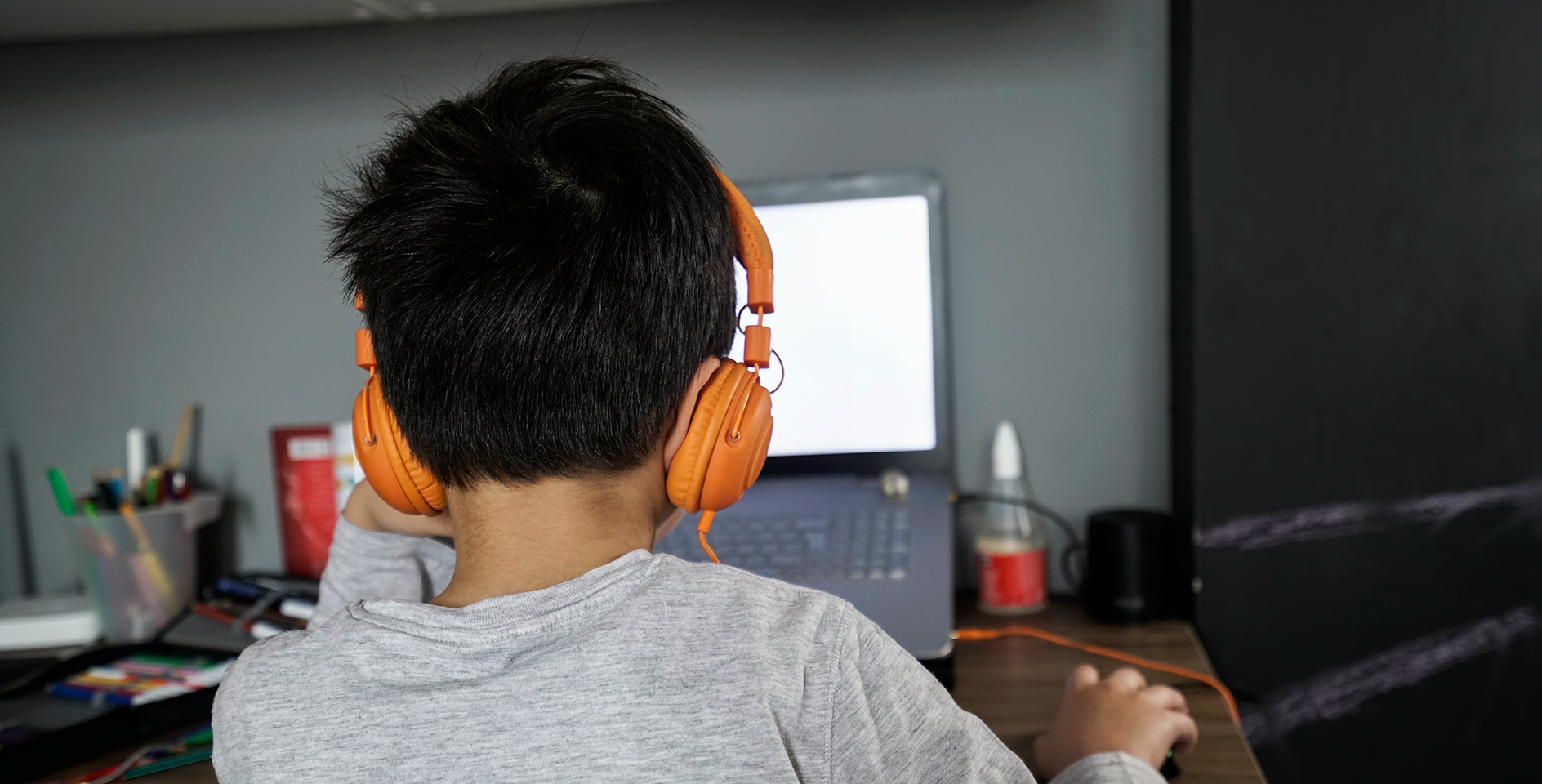The COVID-19 pandemic has reshaped the way almost all activities take place. Events like school, church, and regular social gatherings have shifted to being virtual experiences rather than in-person meetings due to the safety guidelines. Moving to an online format has presented numerous challenges, but one of the biggest challenges we face is how to make sure that kids are safe on the internet. Internet safety for children has always been a concern, but increased use of technology and the amount of time spent in front of a screen has elevated the need for intentional measures to protect our children. Rather than being reactionary in combating unsafe or inappropriate material on the internet, we need to be proactive in establishing safe and helpful internet practices. Here are some issues to consider as you seek to safeguard your children online:
1. Screen time
Something that adults and children alike have had to figure out during the last few months is what a work/life separation looks like when remaining home. For many of us, our places of work and rest are within the same walls; we do not have a daily commute to cool down, do not change out of work clothes, and are spending exponentially more time in front of a screen. This will also be true for children when school starts again. Usually, “screen time” is a form of reward after the day is finished or on the weekends; but right now, screens are the medium for learning and not just for entertainment.
It is important for children and parents to have set routines and rhythms. Set aside specific times of day to complete chores, do homework, go for walks, and spend time with family. While every day does not have to be exactly the same, you can create a sense of normalcy by having cut-off hours for school life and by setting screens aside at a certain point in the day. Because we don’t know what to expect for the fall semester, we can be better prepared by thinking through the possibility that we may have to do school from an online or at-home format. One idea worth considering is purchasing blue-light blocking glasses to keep children from getting headaches as they spend extra time completing assignments in front of a screen.
Routines and rhythms make adults feel more productive, and the same will be true for our children.
2. Monitor online presence
Awareness of how your children are using the internet is of paramount importance. This includes what they are watching, the social media platforms they are using, the online learning programs being accessed, and with whom they are communicating. It may seem invasive or overbearing, but knowing these things about your kids can be tremendously beneficial for their well-being and safety. Especially for younger children who are still learning how to navigate the computer and other technology, it is crucial for parents to monitor their children’s online presence.
Some of the dangers kids run into on the internet include cyberbullying, inappropriate websites, sexual predators, and scammers. Kids who have never been taught internet safety are not equipped to deal with these issues when they arise, and it is very likely that they will not be able to identify these as potential threats. By monitoring what children are doing online, parents have the opportunity to recognize threats and harmful content that the children may not recognize themselves.
Secretly checking on your kids will erode their trust which can cause them to hide online content and lie about what they are doing. Having open and honest conversations with your children about the potential dangers they may encounter online can help protect them, as well as create a home environment that allows children to feel safe when talking about hard topics. Knowing all of the passwords to the accounts your children have is a good way to check their content; it is prudent to do random checks on their accounts. Another good practice is only allowing children to have access to screens in public areas of the home. If a parent is able to see what the kids are working on, it can protect and keep them accountable.
3. Rules for internet usage
A practical step for internet boundaries is to have a list of internet rules. Your list of rules to implement may include:
- Never give out personal information.
- Do not post your photo on any public site.
- Do not open an email or private message from someone you don’t know.
- Don’t respond to hurtful, insulting, or bullying messages. Report any message like this to a trusted adult.
- Report any inappropriate message to a trusted adult.
- Never agree to meet with someone you’ve only met online.
- Never spend or send money online without adult approval.
- Set appropriate time limits for being online.
- Do not chat with strangers.
- Report any content, images, or conversations that make you feel uncomfortable, even if it comes from someone you know.
We must also recognize that predators are not always strangers, but can be people within our communities. While child molesters and sexual predators may be strangers, research shows that most target victims they already know. Make sure to talk with your children about predatory behaviors before this situation presents itself.
These rules are just general guidelines to help think through the important topics and stipulations you should discuss with your children. Each age group will be different, so rules can change as kids get older. Talk through your internet safety rules with your kids regularly and explain why they are important.
Moving forward
Continue being just as vigilant with internet boundaries as you were before the COVID era. More time spent on the internet means more times to check in and guard the safety and privacy of your children. Furthermore, enforcing screens in public spaces will help children keep accountable and stay safe while they are on the internet.
The internet is a tool: not inherently bad, not inherently good, but it can be used to both edify and tear the soul. Because children will be spending more time on laptops and tablets in the coming months, parents should be extra vigilant in monitoring screen time, having hard conversations about safety and sexuality, and praying for God’s protection. Parents serve in the role of guide and counselor; let us not miss this opportunity to train our children in the way of the Lord and remove stumbling blocks when we are able.
ERLC interns Juliana Martinez and Mary Beth Teague contributed to this article.









